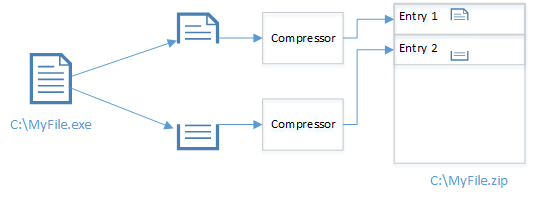Performance tips and tricks – part 2
In part 1 I presented you with some tricks on loop optimizations and constants. This time I’ll show you some simple keywords in C# that can speed up the execution of your code for the various reasons.
Sealed keyword
Marking a class as sealed makes it it unable to be used as a base class. This is primarily used to prevent other classes from deriving from it. This can unlock some run-time optimizations.
Before:
After:
Static keyword
You can use the static keyword to instantiate a copy of a class at run-time and only keep that one copy in memory. You can read more about the static keyword in the link – be careful with it, you should only use it where appropriate.
Before:
After:
Struct keyword
There are two types of allocations in C#: Stack and heap
The stack is where all the value types go: int, char, enum, structs and the like.
The heap is where all the reference types go: class, interface, string and the like.
The stack does not get garbage collected and allocations in that memory space is a lot quicker. When the data structure allow it, we should allocate our data on the stack.
Before:
After:
Ref keyword
Using ref can sometimes greatly improve performance. It copies the value type by reference instead of by value. If this sounds like gibberish to you, take a look at the following article: Parameter passing in C#
Beware that the before example does actually not change the unit data. It only changes a copy of the data. The calling class will not upgrade the unit.
Also, have in mind that this can also decrease performance. The overhead of dereferencing the value type can exceed the overhead of copying by value. Always test if you actually get more performance.
Before:
After:
Out keyword
The out keyword is almost exactly like the ref keyword. The ref keyword needs the object to be instantiated before you pass it as a parameter, the out keyword does not.
Before:
After:
Note: As you see, the responsibility of instantiating the UnitData has been shifted to the UpgradeUnit() method. Before it had to be instantiated before it was passed to the method.
Unsafe keyword
The unsafe keyword is not used very often because of its nature and a name that can scare away most developers. Not to worry, the unsafe keyword enables the use of C concepts like pointers. Pointers are not just grab and go knowledge and it can cause havoc if used incorrectly.
Remember to turn on unsafe code in the project build properties. Also remember to use the fixed keyword to pin the memory location of variables or use the stackalloc keyword to allocate memory outside of the garbage collected memory.
Before:
After:
Note how the arrow (->) is used instead of the dot (.) when accessing members.













Comments
Post a Comment